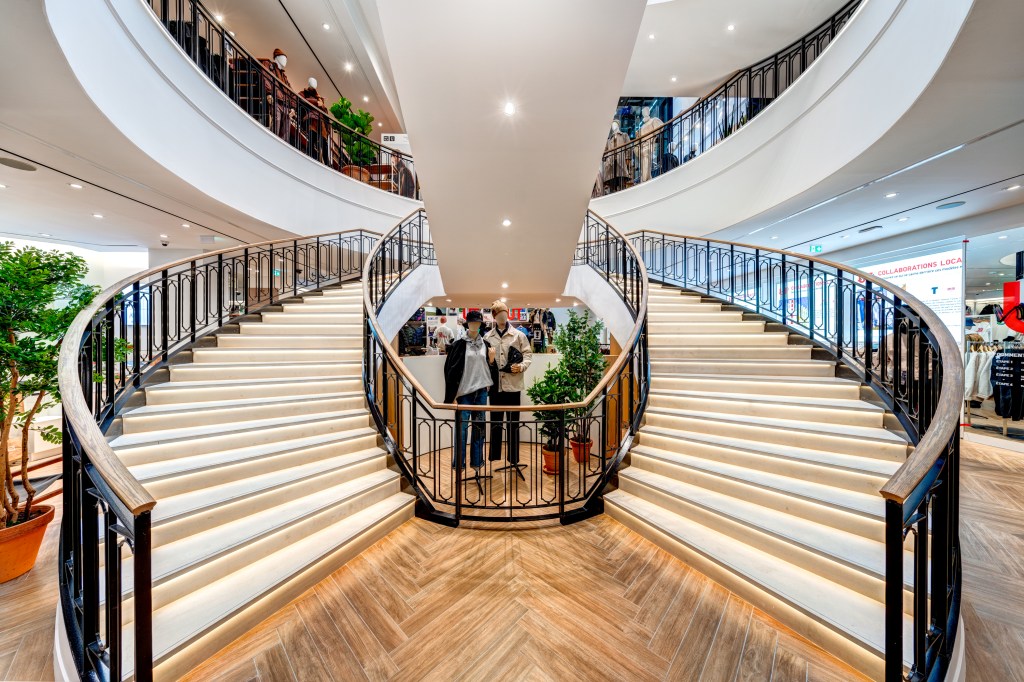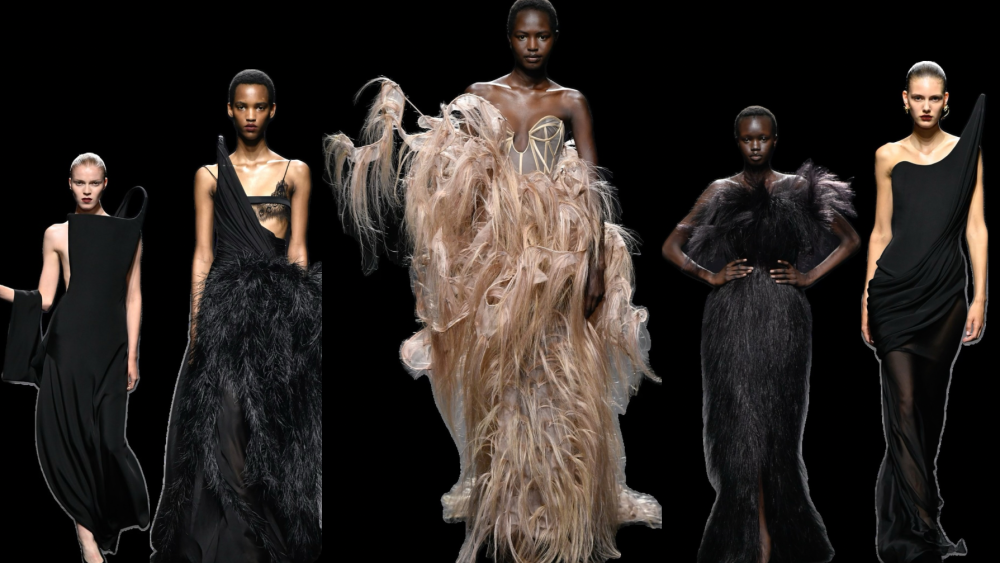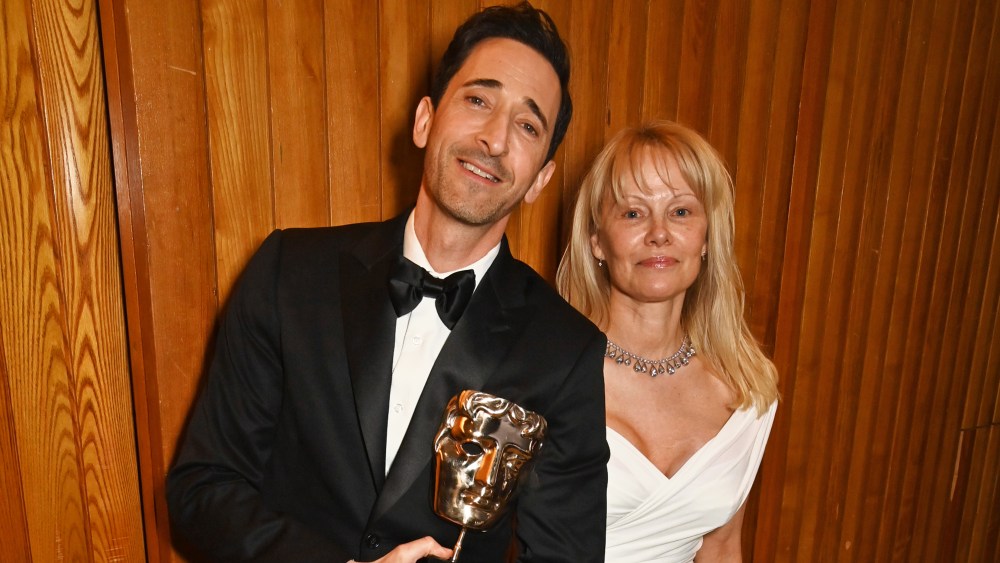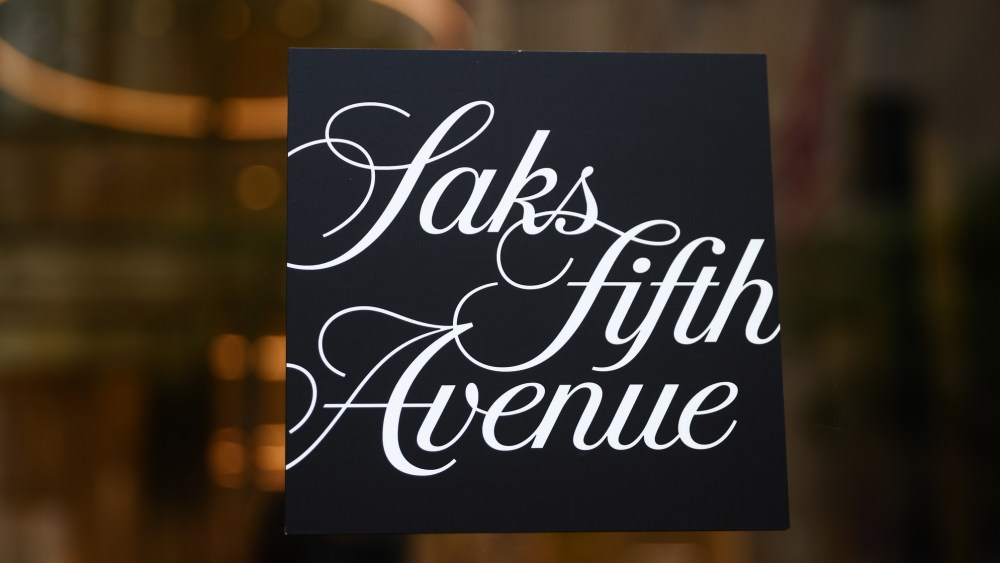PARIS — Uniqlo has reopened its Paris flagship with a focus on customer service and flow, while playing up the location’s historical roots as a theater and the company’s new partnership with the Paris Opera.
Following nine months of renovation, the new look was timed to the debut of Clare Waight Keller’s highly anticipated first collection for the brand, a new partnership with the former Chloé and Givenchy designer.
The rue Scribe location is bookended by a Zara on Boulevard Haussmann and another just on the other side of the opera house, and it sits catty corner from an H&M. Taku Morikawa, chief executive officer of Uniqlo Europe, maintains these aren’t competitors, as Uniqlo’s strategy is steady basics.
“We’re not a fast fashion player at all, by the way. We don’t do fashion, we are about redefining components for everyday wear,” said Morikawa. Instead the focus is on design, function and quality. “That’s our very atypical mindset. It’s not just, OK, follow the fashion trend. That is not what makes sense to Uniqlo.”
Bringing Waight Keller on board certainly ups the brand’s fashion street cred, which is framed as a long-term partnership, alongside Christophe Lemaire, Inès de La Fressange and JW Anderson, which was refreshed this year through a collaboration-within-a-collab featuring tennis champion Roger Federer.
The company was not seeking a famous designer, Morikawa told WWD, but rather someone that would fit into the philosophy of elevated basics for the brand. Hints from the partnership collections will also infuse the regular product mix.
If they are not making a pure fashion play with Waight Keller, what it will do is help establish the brand’s womenswear. Uniqlo is looking at the category as a key growth driver. “Men’s has been stronger here in France, so this is a really good point for us — a very, very big chance to penetrate into the women’s market and to provide an emotional product.”

In the flagship redesign, they moved the women’s department and placed it center stage. The new spot demonstrates the brand shift, not just in Paris or Europe, but the idea is to strengthen womenswear across all markets. “In this case, product is very important, but also the shopping experience and appealing stores alike,” he said of attracting female customers with enhanced store layout as well as customer service.
That service includes a “Japanese hospitality mindset,” he said, with special training for employees across the European Union and the opening of a tailoring and repair bar. The brand has trialed the concept at other locations with success. There are six employees manning this station to attach vintage buttons or Sashiko stitching patches, for example.
It’s part of the brand’s flagship strategy to play up the neighborhood where it sits; with the Paris location it has the grandest of neighbors in the Opera Garnier. That inspired the in-house design team to highlight the building’s 19th century staircase and arched windows, as well as add a soaring skylight and additional views on the historical building. They opened up a storage space that hid some of the architectural gems, such as an old marble fireplace that now sits in the middle of a series of dressing rooms.
The company recently used the same design strategy on its Covent Garden store in London, which opened last April.

The interiors continue to be in line with the Japanese brand’s functional and modular aesthetic, and it’s also upping its tech specs, adding 28 self-checkout stations, which now outnumber the eight traditional machines. There are a total of 34 dressing rooms divided between two floors.
France is the company’s biggest market in Europe with 26 stores, and it’s about to open a new outpost in the alpine town of Annecy. Luxembourg is next on the list for expansion, with both scheduled to open before the end of the year.
The pandemic was a learning experience for the French market. Tourists were largely shut out, but they were able to gain valuable local customer insight from this period and hone the product mix. Still, the company is keenly aware that the Paris outpost is located in one of the most highly trafficked tourist spots in the world.
“There is a very obvious combination of locals living in Paris, in this particular area, and we are also seeing a huge amount of tourists that are coming. This is a super important location next to the department stores,” he said. While there are seven additional Uniqlo stores in Paris, Morikawa sees the Opera location functioning as a hub.
They have also partnered with local artists and brands, including Sanae Nicolas, Cuvée Noire, Le Chocolat des Français and Tom Ducarouge.
Morikawa said that European growth is a major focus for Uniqlo and parent company Fast Retailing.
“We are now standing at a good position in the market [with] meaning to the customer,” he said of growing brand awareness in Europe. “We definitely want to accelerate opening stores in new markets and new cities.”
There are currently 70 stores in Europe, which does not include Russia, where the company’s operations remain suspended despite rumors it was offloading its assets earlier this year. That strategy remains in a holding pattern for now, he said.
Physical stores are an important channel to connect with customers in new markets, with a small store strategy in place.
“We aim to open many stores. Definitely, in the next few years, it will drive the expansion of our business, then there will be more channels to connect to the customer,” he said. “The purpose is not just to increase sales, increase the number of stores, [but to] provide a good concept, product and customer service and the company stands for itself.”
The brand opened its first store in Poland at the end of last year. “We now realized that this is a big opportunity,” he said, with new eyes on eastern Europe. The company is in the process of learning the differing codes of the local countries there and plans to open new stores in the region.
Uniqlo’s international division’s Q3 revenue was up 38 percent year-over-year in the three months to May 31, as reported in the latest financial results from parent company Fast Retailing. “Uniqlo Europe generated large rises in revenue and profit on the back of strong sales of core products,” the company said.
“I can say that it is not just [driven] by opening new stores,” said Morikawa, without divulging numbers. “A very important point is like-for-like sales.”
Online accounts for 20 percent of the European business. “It’s growing, but for us it’s not only a specific focus on the e-commerce business [but the] physical store is super important because we can provide the good atmosphere for the customer to clearly understand what Uniqlo is, and [give] an experience that you can only provide from a physical store.”
That’s why the expansion focus lies in the footprint.
“It’s a very good time to accelerate the business. But it’s not just to achieve expansion [and] open a number of stores, increase sales, increase the profitability — that’s very important — but a more important point is how we deliver the Uniqlo company itself,” he emphasized.
“This should be our big concept and target in EU. So based on that, we need to create a new strategy, not just to achieve status and increase popularity, because otherwise, we might be misunderstood [as a fast-fashion brand]…It’s not just about sort of achieving our sales targets. It’s about having a long-term strategy. It’s about building that respect.”




